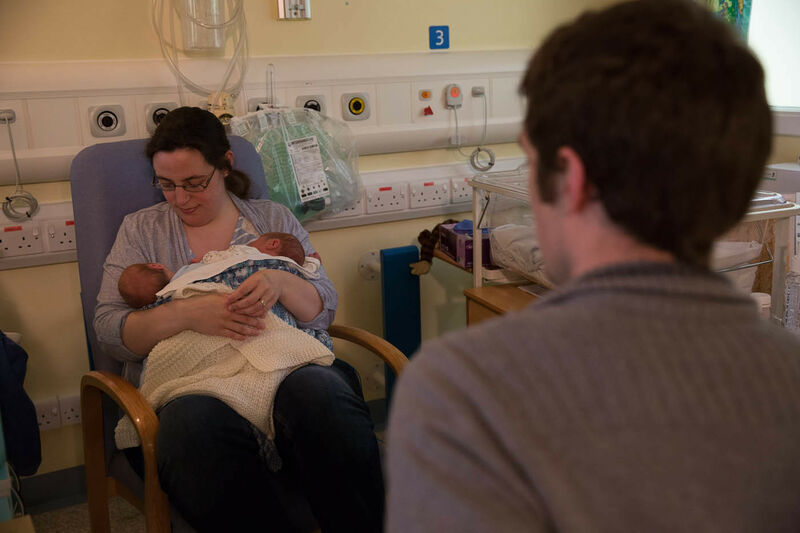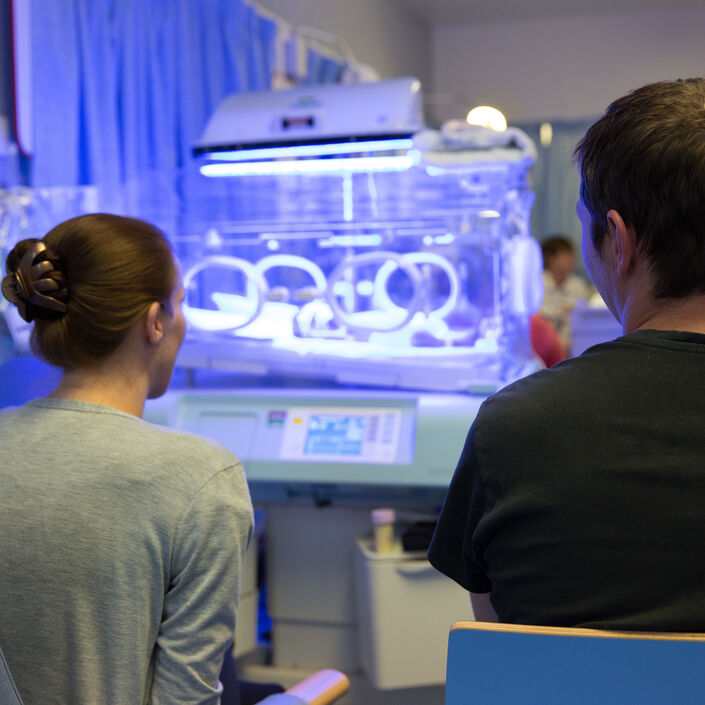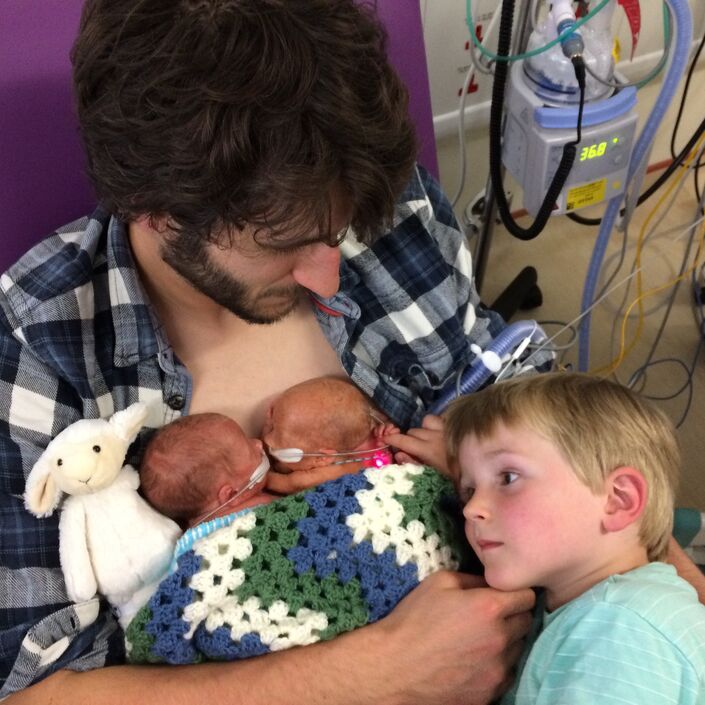Feeling overwhelmed
Having a baby is always a big change to your life, whether this is your first baby or you have other children. Parents can feel that they have to put on a brave face when they might be struggling themselves, and this can be especially true when your baby is in neonatal care.
Spending time in neonatal care is something most parents do not expect. It can also follow a sudden, difficult, or sometimes traumatic birth.
You might feel you need more support in facing these challenges, or you might feel as though you need to talk to a health professional about your mental health.
Feeling overwhelmed can be very common for parents on the unit. Often people describe feelings like:
- Anger
- Sadness
- Shock
- Confusion
- Guilt
- Helplessness
- Being out of control of your situation
- Not really knowing how you're feeling
You might also feel less able to focus on practical things which might still need doing, like organising childcare for other children you may have, paying bills, or planning meals.
You might feel a mixture of different emotions at the same time, which could feel confusing and difficult too. Not knowing what might happen next can also add to this feeling.
You might be spending a lot of time on the unit, or finding it hard to sleep. These changes in your regular pattern could make you feel like life has been turned upside down.
You may feel worried about going back to work, finances, travel, or caring for another child you have. These unexpected challenges can add more pressure on the everyday things that make up your life.
The environment of the neonatal unit can make these feelings worse for you.
Having no natural light, and living in a small and quiet space can have an impact on how you face challenges.
Find out about how to look after yourself, and what might help you on our page about support for your mental health.
Feeling anxious
Having an unwell baby can leave you feeling out of control of your situation. Often parents have lots of questions about why this has happened to them, what will happen next and what they can do. The unknown can be very worrying for parents, especially when their baby is vulnerable.
Hospitals can make many people anxious. This could be because you have experienced something difficult or traumatic in a hospital before (either with yourself or other family members).
Or you may feel anxious because there are lots of staff who you might not know, and the environment can feel unfamiliar.
You might also feel fearful of what might happen, and sometimes expect the worst for your baby.
Not knowing how to get involved with caring for your baby can also make you feel anxious. We often hear that parents feel very anxious when they take their baby home. It might feel scary to be faced with being alone with your baby, and you might be worried that they will become ill at home.
It is common to feel anxious during difficult times, but sometimes it can have a bigger impact on your day to day life, or can last longer than you might have expected. If you feel this might be happening for you, it is important to get support.
Find out more about anxiety, what the symptoms are, and how you can get support from NHS Choices, or from Mind, the mental health charity.
Spending time on a neonatal unit might make it harder to face mental health issues you have struggled with before. If you’ve suffered with anxiety in the past, you could find that being in the neonatal unit brings back those feelings.
You might find it helpful to go back to the support you’ve used before, or to talk to someone new about what you’re feeling now.
If you do think you are suffering from anxiety, it is important that you get help and support. Staff on the unit can help you talk about what options might help you. You can also find out more about support for you on our page here.
Feeling grief as a bereaved parent
Parents whose babies have died often tell us about their overwhelming feelings of grief. This can have a very big impact on their mental health.
Having a baby who dies is life changing. Many bereaved parents tell us of the huge feeling of emptiness and of loss, having carried and prepared to take their baby home.
Parents also speak about the ongoing reminder, when big milestones like birthdays come around, and how challenging that can be too.
The feelings you have and the challenges you face with your mental health after having a baby who dies are likely to change and evolve over time. Grief doesn’t have a time limit – everyone’s journey is completely individual.
If you are bereaved or you’re facing bereavement, support should be available for you from your neonatal unit, or your GP. However it may take some time for you to feel ready to access this.
Bliss works with a number of other charities to make sure that the right support is available for all parents who experience the loss of a baby, including during pregnancy or on the neonatal unit.
You can read more information about facing the death of a baby.
You can also find more support from Sands, Child Bereavement UK, and The Lullaby Trust.
Bliss also works with a number of other charities on Baby Loss Awareness Week in October each year.
Feeling grief if your baby survived
Feeling grief doesn’t only happen to parents whose baby has died. Having a baby in neonatal care can mean losing or letting go of ideas and plans you had.
You might have imagined the birth you wanted, or the first few moments or days with your new baby. Often, these ideas can have been imagined by parents for years before their baby was born.
Being forced to let go of those plans can leave parents feeling a sense of grief, for moments they will never get back. Parents often say they feel guilty for feeling this if their baby has survived.
How you feel and process what has happened to you might be different to how others face these challenges. Feeling this way is completely understandable and very common.


